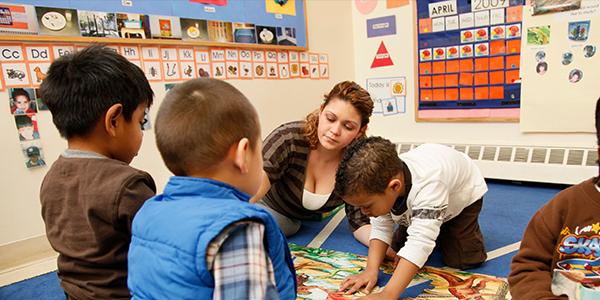The Influence of Extracurricular Activities on Academic Success
The Influence of Extracurricular Activities on Academic Success
Extracurricular activities (ECAs) play a significant role in the educational experience of students. From sports teams and music bands to clubs focused on science, arts, or community service, these activities are often considered an essential aspect of school life. However, the relationship between participation in extracurricular activities and academic success is complex and multifaceted. This article explores the various ways in which extracurricular activities influence academic performance, highlighting both the benefits and potential drawbacks.
Introduction to Extracurricular Activities
Extracurricular activities encompass a wide range of pursuits that occur outside the regular academic curriculum. These activities are typically voluntary and provide students with opportunities to engage in interests that extend beyond academic subjects. While ECAs are often viewed as a means of enhancing a student’s resume or college application, their impact on academic success is a subject of ongoing research and debate.
The Benefits of Extracurricular Activities
2.1 Skill Development
Participation in extracurricular activities helps students develop a variety of skills that are crucial for both academic and personal growth. For example:
- Leadership: Holding positions in student government or leading a team fosters leadership qualities.
- Teamwork: Sports and group activities teach students how to collaborate effectively with others.
- Creativity: Clubs focused on arts or music encourage creative thinking and expression.
2.2 Time Management
Balancing academic responsibilities with extracurricular commitments teaches students valuable time management skills. They learn to prioritize tasks, set goals, and manage their schedules effectively—skills that are essential for academic success.
2.3 Social Skills
Extracurricular activities provide a social environment where students can make friends, build networks, and develop interpersonal skills. These social connections can enhance a student’s sense of belonging and support, which are vital for academic motivation and success.
2.4 Mental Health and Well-being
Engaging in extracurricular activities has been linked to improved mental health outcomes. Participation can reduce stress, anxiety, and feelings of isolation, contributing to a more positive attitude towards academics. Students involved in ECAs often report higher levels of satisfaction and motivation.
Extracurricular Activities and Academic Performance
3.1 Positive Correlations
Research suggests a positive correlation between participation in extracurricular activities and academic performance. Several studies have found that students involved in ECAs tend to have higher GPAs, better attendance records, and increased rates of college enrollment. The skills and attributes developed through these activities often translate into better academic outcomes.
3.2 Potential Drawbacks
Despite the benefits, there are potential drawbacks to consider. Overcommitment to extracurricular activities can lead to:
- Burnout: Students may experience exhaustion from juggling multiple commitments, which can negatively impact their academic performance.
- Time Constraints: Excessive participation in ECAs may limit the time available for studying and completing assignments, leading to decreased academic performance.
Finding the right balance between extracurricular involvement and academic responsibilities is crucial for maximizing the benefits while minimizing the drawbacks.
Factors Influencing the Impact of Extracurricular Activities
The influence of extracurricular activities on academic success can vary based on several factors:
- Type of Activity: Different activities have different impacts. For instance, academic clubs may directly enhance learning, while sports may promote teamwork and discipline.
- Duration and Intensity: The amount of time dedicated to ECAs can influence their effects. Moderate participation is generally more beneficial than overcommitment.
- Student Characteristics: Individual traits such as motivation, organizational skills, and personal interests play a significant role in determining how ECAs affect academic performance.
- Support Systems: A supportive environment—both at home and in school—can enhance the positive effects of extracurricular involvement.
Case Studies and Research Findings
Numerous studies have investigated the relationship between extracurricular activities and academic success. Here are a few key findings:
- Research Study by the National Center for Education Statistics (NCES): This study found that high school students involved in extracurricular activities had higher GPAs compared to their non-involved peers. The benefits were particularly pronounced for students participating in both sports and academic clubs.
- A Study Published in the Journal of Educational Psychology: This research indicated that students engaged in structured extracurricular activities, such as debate or music, showed significant improvements in critical thinking and problem-solving skills.
- The Role of Sports: A study conducted by the University of California found that student-athletes, particularly those who engaged in competitive sports, had higher academic performance due to the discipline and teamwork skills developed through sports participation.
Conclusion
Extracurricular activities have a profound influence on academic success. They offer numerous benefits, including skill development, improved time management, enhanced social skills, and better mental health. However, it is essential for students to find a balance between their extracurricular commitments and academic responsibilities to maximize the benefits and minimize potential drawbacks. Understanding the interplay between these activities and academic performance can help educators, parents, and students make informed decisions about participation, ultimately fostering a well-rounded educational experience.
By recognizing the importance of extracurricular activities and encouraging balanced involvement, we can create environments where students thrive academically and personally.
This comprehensive article on the influence of extracurricular activities on academic success is designed for clarity and SEO optimization. If you have specific keywords or additional topics you’d like included, feel free to let me know!






